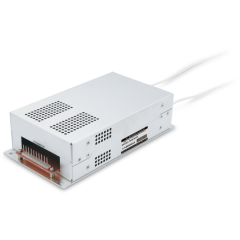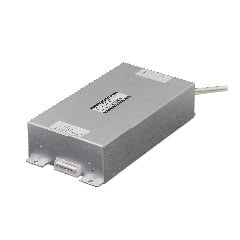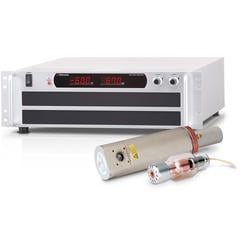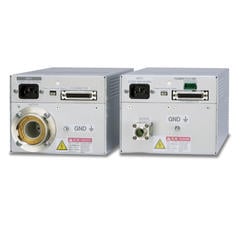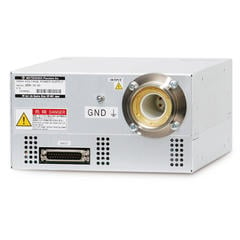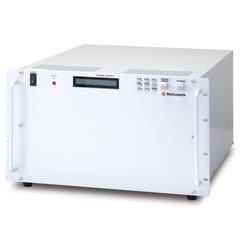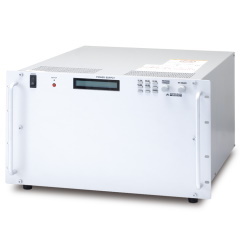A floating power supply is a power supply that can be used with its output floating ground. While ordinary DC power supplies are used with one side of the output end grounded to the ground, floating power supplies can be used with another power output connected to one side of the output end. Floating power supplies can be connected to another power supply output on one side of the output end. The input and output sides of a floating power supply alone have a high dielectric strength inside the product.
The main applications of floating power supplies are power supplies for micro-channel plates used in detectors of mass spectrometry, power supplies for filaments of anode-grounded X-ray tubes, power supplies for filaments, grids, bias, and electrostatic lenses of scanning electron microscopes (SEM), and transmission electron microscopes (TEM), and power supplies for filaments, suppressor electrodes (suppressors), extractor electrodes (extractors), and condenser lenses of focused ion beam (FIB) devices.
When selecting a floating power supply, it is necessary to confirm that the voltage and current (power supply capacity) required for the load and the external floating voltage is less than the dielectric strength voltage of the floating power supply.
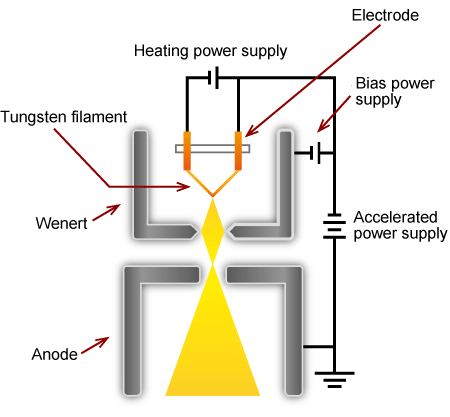
In this figure, the heating power supply for the filament and the bias power supply for the wehnelt are floating power supplies.
Matsusada Precision sells the FDC series and MF series as floating power supplies. We also offer the XPg and XPgM series of power supplies for X-ray tubes, the SEM series of power supplies for scanning electron microscopes, the HEB series of power supplies for electron beams, and the HIB series of power supplies for ion beams, all with built-in floating power supplies.
Recommended products
Information on related articles in Technical Knowledge
- Difference between DC power and AC power
- For New Electronics Engineers, How to Use the Power Supply Safely
- Safety and Usage of High Voltage Power Supply
- High Voltage Measurement Method
- What to do if you get electrocuted? What to do in case of electric shock(electrical injury) and how to handle high voltage




